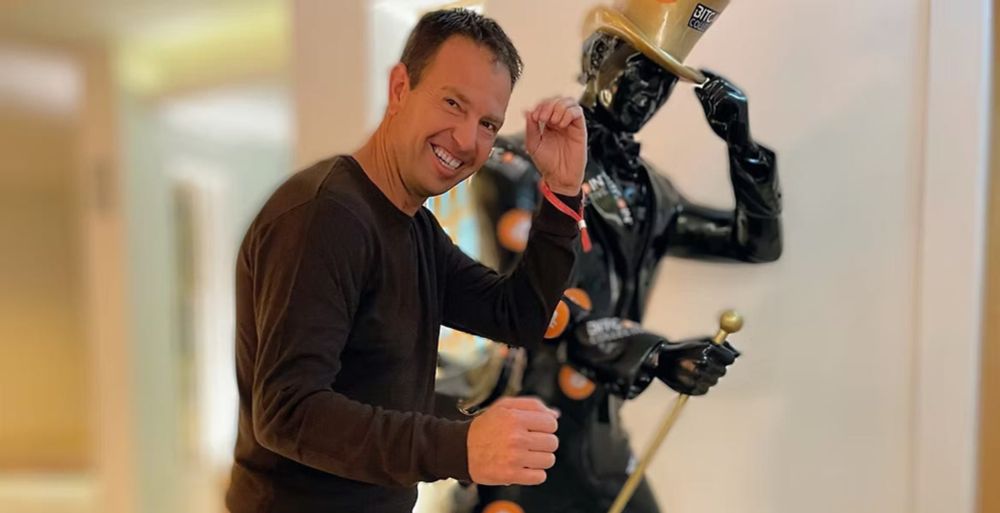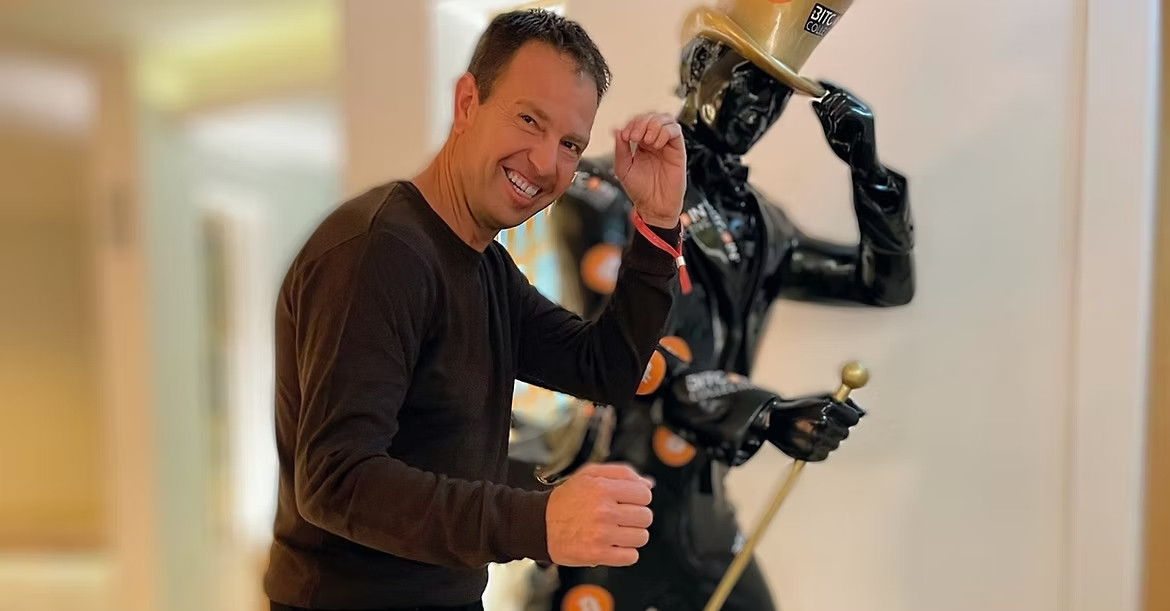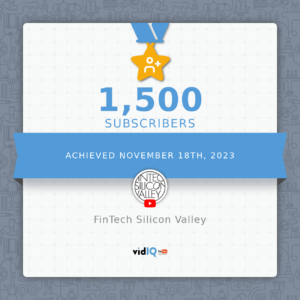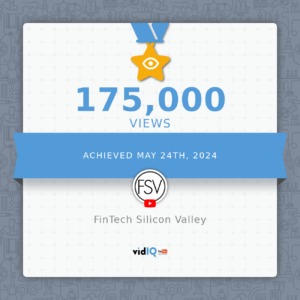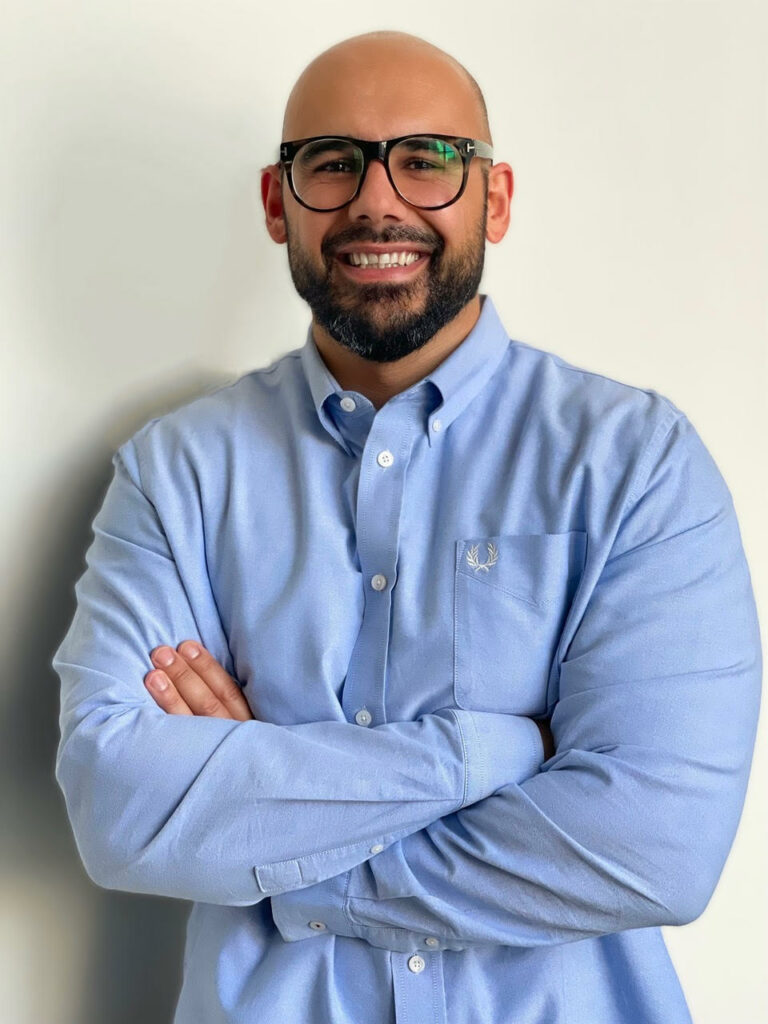
Amir leads Fintech and Insurtech investing at AV8 Ventures and has been one of the earliest investors in the Insurtech space. Amir has been an entrepreneur, operator and investor with over 15 years of experience, working with early and mid-stage companies on financing, partnerships and strategic growth initiatives. Prior to AV8, Amir was an investment director and founding team member at Munich Re Ventures where he lead and managed investment efforts for two of the funds and made early bets in Insurtech, Mobility and Digital Health in companies like Next Insurance, Inshur, HDVI, Spruce, Ridecell, Babylon Health etc.. Earlier Amir worked for several venture funds, including Route 66 Ventures, focusing on Fintech and Insurtech, and investing in companies such as Simplesurance and DriveWealth. He began his career in Germany as a network engineer and subsequently at Legodo AG (acquired by Open Text, OTEX (NASDAQ)), an enterprise software startup, where he held several roles in sales, business development and product management until acquisition. In 2019, Amir was ranked 11 out of 100 on Global Corporate Venture’s Rising Stars list and was named a “VC Champions Select” by All Raise. Amir lives in San Francisco and holds an MBA from Georgetown McDonough School of Business, a BS in Business Informatics from RFH Cologne in Germany and is currently finishing an MS in Law from Northwestern Pritzker School of Law.
Amir leads Fintech and Insurtech investing at AV8 Ventures and has been one of the earliest investors in the Insurtech space. Amir has been an entrepreneur, operator and investor with over 15 years of experience, working with early and mid-stage companies on financing, partnerships and strategic growth initiatives. Prior to AV8, Amir was an investment director and founding team member at Munich Re Ventures where he lead and managed investment efforts for two of the funds and made early bets in Insurtech, Mobility and Digital Health in companies like Next Insurance, Inshur, HDVI, Spruce, Ridecell, Babylon Health etc.. Earlier Amir worked for several venture funds, including Route 66 Ventures, focusing on Fintech and Insurtech, and investing in companies such as Simplesurance and DriveWealth. He began his career in Germany as a network engineer and subsequently at Legodo AG (acquired by Open Text, OTEX (NASDAQ)), an enterprise software startup, where he held several roles in sales, business development and product management until acquisition. In 2019, Amir was ranked 11 out of 100 on Global Corporate Venture’s Rising Stars list and was named a “VC Champions Select” by All Raise. Amir lives in San Francisco and holds an MBA from Georgetown McDonough School of Business, a BS in Business Informatics from RFH Cologne in Germany and is currently finishing an MS in Law from Northwestern Pritzker School of Law.

Transcription
Pemo: Welcome Amir. So lovely to reconnect with you. I was wondering if you would tell me about your new firm and what you’re doing there and obviously you had some great results when you’re at Munich Re Ventures So let’s talk about that.
Amir Kabir: Yeah, absolutely thanks for having me Pemo and good to reconnect with you as well. Yeah I recently joined AV8 Ventures which is an early stage fund here in the Bay area. We are on our second fund of $180 million and have been focusing on four core categories or sectors one of which has been healthcare or digital health. The other one has been infrastructure software enterprise software kind of the SaaS plays out there. The third one is deep tech, I would describe it. And the fourth one which I was brought on board with and I’m very excited to be on board of AV8 Ventures is to build out the fintech and insurtech practice, as you indicated I’ve spent the past 6 years you know at Munich Re Ventures and I was fortunate enough to work with the broader minire group and the colleagues over there and have invested in all of the emerging Insurtech out there, specifically on the product and distribution side and I’m very keen to let you know that I continue that legacy here now with AV8 Ventures.
Pemo: And Insurtech is definitely very hot and has been for quite a few years since I’ve been running the fintech events in 2016. So you know they were really on the scene then and I’m wondering how the crisis has affected the innovation in that domain.
Amir Kabir: Yeah, that’s a very interesting question. So maybe a little bit more about my background I actually started investing in Fintech, almost 8 years ago, before that I actually grew up in Germany and spent most of my time in the tech scene in Germany. It was part of startups over there.
Pemo: Great.
Amir Kabir: But one of my first investment roles was with root sixty six ventures on the East Coast which is kind of like a premier fintech fund that you know has established itself on the east coast and I remember like my first investment was in a simple assurance which is basically a product warranty provider at the checkout right? So the guys are focused or focused mostly on Europe and in Asia and try to you know come come come to the us as well. But in Insurtech it’s been booming now for 5 or 6 years as you indicated.
Amir Kabir: But I think like you know insurance tech has been around for many years and people didn’t even realize that from the get-go right? I mean think about things like travel insurance right? when you bought or when you’re buying a plane ticket. How insurance is integrated into the process at the checkout right? So insurance tech has been around but it has never been really Innovative or digitized right? I think the problem there is that insurance companies really didn’t put you the customer in the front right? when you think about insurance companies. Categorize customers as policyholders rather than customers right? So that basically tells you a lot. Well how insurance company executives think and I think that is why insurtech started.
Pemo: Really dehumanizing really? Ah yeah.
Amir Kabir: Whereas entrepreneurs realize hey you know there’s an opportunity. Not only to digitize and bring insurance online and distribute it online but also have a customer-centric approach to it right? Be like hey you’re the customer. Let’s see what you need and make it more tailored to your needs as well. But I think the biggest issue with Insurtech is that insurance companies they’re great at selling you insurance when you don’t even need it right? But when you need insurance companies they’re not there for you so that’s the latter part.
Pemo: How does that work? Why does that happen?
Amir Kabir: Yeah, the delayed part of insurance when you really have a claim I think that’s where the frustration kicks in for most of the customers and where like people ah really kind of quote unquote hate insurance. But these insurtechs have tried to disrupt and innovate the whole value change from acquiring customers, underwriting or pricing customers but also in a backend like servicing customers when there is a need. So I think given that everything kind of went online, the insurtech sector boomed even more throughout the pandemic. I think we started with Munich Re Ventures almost 6 years ago. We were one of the earliest investors in insurtech and were fortunate enough to partner up and invest in a tremendous amount of entrepreneurs and insurtechs and it was interesting to see back in those days. A lot of investors were like well we don’t know insurance and insurance tech is not really a sector we focus on and it’s quite interesting to see how that has emerged over the last you know 5 years and I think now we’re kind of like entering. Insurtech I would say maybe v.2 or v3 where you know more and more entrepreneurs are focusing on the insurtech or insurance category similar to what we have seen I think in the fintech category right? I mean that was like wave one and wave two and you know the wave three we’re entering right now which kind of also culminates with insurance is like the Defi space right? Where everything is transitioning into that sector if that makes sense.
Pemo: Yeah, yeah, so just moving onto the fintech subject. What do you see coming up the pipeline at the moment because everyone’s telling me how hot the investment market is now and obviously at the beginning of the Crisis everyone just was questioning what in the hell is going to happen and how is it going to go? And now it’s really quite a hot Market. So Can you tell me a bit about what you’re seeing coming up the pipeline and where you think things are heading as regards fintech because it is great that it’s booming. The incumbents really needed to be moved along so that customers’ needs would be fulfilled more.
Amir Kabir: Yeah, absolutely I think I differentiate you know obviously between fintech and insured tech I think in the Insurtech space I start with that I think what I’m really interested in what I’m intrigued in are kind of the niche markets and insurance the Insurtech and I started with as mentioned digitizing traditional um insurance products right from home insurance to auto insurance to renters insurance everything that you know people everybody kind of needs and I feel like. Ah, commercial insurance was the second way for people tapped into cyber insurance has been emerging and you know booming lately. But I am really interested in niche markets like collectibles insurance, right? insurance for anything that you can collect from jewelry to watches to digital art and NFTs and whatnot.
Pemo: Well they cover NFTs as well. That’s interesting.
Amir Kabir: And yeah, there’s actually a startup that I think is going from Insurtech to fintech. I’m transitioning quickly but there is a startup that just races with a little bit of seed funding and provides basically asset lending against your NFTs right? So if you have all NFTs and as you know these things are fluctuating from the price perspective. You know you, you might buy an NFT for like 100 bucks if you’re lucky, but then you know in a week it might be worth a million dollars for whatever reason? don’t ask me why.
Pemo: Yeah, ah yeah, it’s just the nature of the beast these days.
Amir Kabir: Ah that’s it and you can basically provide lending against that right? So I think ah collectibles insurance combined with lending against collectibles is a pretty interesting you know category that I’m following. Medical practice is another one which I have been very keen about and has been overlooked for years for a lot of different reasons right? I mean medical practice is a very cumbersome process to underwrite and you know very operationally-driven, loss ratios have been high but I feel. It’s basically another kind of category of insurance that has been overlooked and you know has to be disrupted one way or the other in terms of digitizing the underwriting process bringing more innovation to that whole process and also the distribution part as well and I think when you when you when we transition now. From there I think you know all of these insured techs that have been successful in the US market or the European market we see like replicating themselves in emerging markets and with replicating maybe not one to one but we see or what I see is people are trying to rebuild parts of it specifically in Latin America or Africa or Asia and I’ve been looking into these markets to understand more how financial services and insurance work because for example in the US and Europe obviously you know what auto insurance is like. You know, Mandatory right? But that’s not necessarily the case if you go to Latina or Africa, right? So replicating that model that you see in the US or Europe in other markets is not necessarily going to be the right way. But I think there are bits and pieces that you know people will take and you know innovate in those markets as well. I think from the fintech perspective as mentioned you know there is a lot of you know I would say hype and noise in Defi and crypto as I think everybody is kind of aware of a lot of people are still denying. It. A lot of people still say yeah, that’s that’s not It’s just a hoax or whatever you want to call it and it’s not going to go anywhere but I feel like if you really look into that you know this the scene and what is happening is kind of replicating the early you know days of the internet right? what.
Pemo: Yes, yes I think you’re spot on there. Yeah.
Amir Kabir: Yeah, so when I think about when the internet started. Let’s say this way if only a few people really had access to it. A few people were excited about it and a lot of people denied and were like no nobody needs that what is that nobody wants you.
Pemo: Yeah, yeah, yeah, yeah, it’s become a necessity.
Amir Kabir: The most trivial thing I mean is I go from A to B. I know the way I put it in Google maps.
Pemo: Yes, but they tell me though that that actually is closing down a part of our brains that we used to have to work out directions. So that’s a worry. But….
Amir Kabir: That’s still good. So I think in the crypto world. It’s the same right? You see all of these you know, new crypto tokens and coins popping up you know, hyping up I mean. A lot of those things are honestly really worthless and I don’t know where the value comes from but I feel there is definitely a lot in between where when you look under the hood you be like hey that makes total sense right? So I think in a defi space and an insurance space. I’ve been looking into that and trying to understand how you know, the blockchain and all of these smart contracts and whatever it is you want to call it out there if it really makes sense in terms of insurance I think I don’t Think. Using Blockchain to Underwrite Auto Policies is really necessary. But to make it really better or whatever you want to call it right? But I think if you look at like you know, um, other kinds of insurance and in terms of smart contracts and I think a lot of entrepreneurs these days focus on Defi insurance basically ensuring your tokens or ensuring your crypto holdings. I think it makes sense to have an insurance product out there. And most of it also resembles traditional insurance products that have been out there like parametric insurance right? So the blockchain basically helps to enable those kinds of parametric products because everything is centralized and you can basically make a payment. More quickly to the customer if there is a claim.
Pemo: And do you think that the crisis basically propelled a lot of fintech services. I know there’s fintech and a lot of the investors have been telling me that there’s a lot of fintech apps now that are going to be integrated into incumbent banking financial services that would never have happened before the crisis. Have you noticed that sort of effect as well?
Amir Kabir: No absolutely I think it will. It will definitely go that way right? I mean I think the best examples in the fintech space are the Neobanks that are focusing on you know might be specific kind of customers either millennials or maybe focusing on emerging markets and whatnot and I think you know 1 of the biggest players out there and 26 out of Germany has been pretty successful and some others here in Latin America and the reason I think they are so successful is that I mean. They are again customer centric right? So when you need something from your bank. They’re they’re there for you. You can communicate with them, I mean just as an example, right? I had something that I was trying to figure out with my bank. First of all I couldn’t find a number where to call. Didn’t pick up and it was like waiting in a kind of waiting room and then you know the service person picks up the phone and when I try to explain the problem she really couldn’t help me out. She was like I’m going to send you an email and then she literally told me you can fax us your response if you like and I was like wait a minute.
Pemo: Ah, who would have a fax now?
Amir Kabir: Is that really happening, still I don’t even know what to do? So I think you know this is where the future is going and obviously like digitizing everything and being very customer centric in the financial service industry and I think I have to have the discussion with my partners too. Is that you have to also differentiate who your customer is right? If you speak to all of these millennials. the mid twenties to and early thirties they don’t want to deal with anybody anymore. So everything has to be kind of integrated into the process. Everything has to be right there – they don’t want to think about whether I need insurance or what kind of insurance. Do I need this kind of bank? Do I need this kind of whatever service they want to basically integrate into that process and I think that’s where we are going overall with fintech and insurtech that you know. Everything is kind of integrated into the process right? So for example, if you want to buy a car right? You can digitize the whole process through an app. You can pick up your car, you can pick up a car you can pay with your debit card and insurance is already integrated into that price right? So the perfect scenario is it is delivered to your home and if you don’t like it. Someone goes to pick it up again. I think that’s what it could be like.
Pemo: Yeah, yeah, and things have become a lot easier in that respect. That’s for sure, just moving on. I was wondering if you could talk a little bit about the German tech scene. I lived a lot of years in Dublin, Ireland. I had a business there. So I’m always interested in what’s happening in Europe. Can you give us a little peek just to talk about that.
Amir Kabir: Yeah, absolutely I spent quite some time when I was at Munich Re Ventures in Europe right? and obviously with the relation to our mothership over there I think you know absolutely the best you know what I can say from Germany’s perspective . They’re super smart you know, entrepreneurs and engineers out there I think that access to Capital has you know, um risen as well. So there’s a lot of capital available which was not the case when I was back in Germany right? and people are becoming more and more tax-savvy. But I think the problem is that I can just speak probably to Germany. Maybe Europe in general is not the case but like I think regulation and the mindset of people is just different and I think that makes it different for startups to really survive you know when you think about how many unicorns we mint in the US right? And how many startups raised so much money and are successful. It’s just a fraction of that, maybe in Germany or Europe. And I think the reason is that people are not (I mean don’t quote me on that and I get a lot of pushback for that) but people are not as open and open-minded to new innovation and technology and that’s I think where entrepreneurs struggle to to really build systems up there right? So the mindset is just different. The people are I would say probably more pessimistic than optimistic to give a shot to people to innovate over there. But the scene is growing. I think Berlin is really booming there and a lot of you know people are building there and very excited. I think we see like the second wave over there where you know it resembles a small kind of community that resembles Silicon valley but at the end of the day I think you know people in Europe still will come over to Silicon Valley to, you know, raise capital & to connect with people and so on and so forth.
Pemo: Yeah I Guess the summary really in Europe um for each country that exists there. It’s just much older cultures and obviously the US is much newer and much more open to capitalism and business. which is what I like about it and it’s great anyway. Amir, look lovely to talk to you today and catch up with you and we’ll hopefully have you back on the show somewhere down the line.
Amir Kabir: Sounds good, Pemo. Thank you so much for having me. I look forward to keeping in touch with you. Thanks Pemo bye.
Pemo: Yeah, yeah for sure. Thank you.



